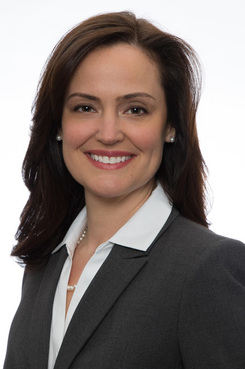This past fall, the U.S. Court of Appeals for the Third Circuit issued two decisions, K.D. v. Downingtown Area School District, No. 17-3065 (3d Cir. 2018), and S.C. v. Oxford Area School District, No. 17-2990 (3d Cir. 2018), which assist parents, educators and special education attorneys in understanding what constitutes meeting the Individuals With Disabilities Education Act’s (IDEA’s) mandate for providing a free appropriate public education (FAPE) to disabled students in public schools. The question of what FAPE is for any one disabled student is an extremely fact-specific determination. Therefore, having recent additional guidance on the analysis process from the Third Circuit is helpful.
Both K.D. v. Downingtown Area School District and S.C. v. Oxford Area School District involved parents claiming that the public school district failed to provide their child’s FAPE, thereby violating the IDEA. In both cases, the underlying administrative decisions were issued in favor of the respective school districts. Additionally, both administrative decisions were issued in 2016 prior to the U.S. Supreme Court’s 2017 ruling in Endrew F. v. Douglas County School District. In Endrew F. the Supreme Court articulated the IDEA’s FAPE mandate as requiring a public school district to provide “an educational program reasonably calculated to enable a child to make progress appropriate in light of the child’s circumstances.” On appeal, the parents in both K.D. and S.C. argued that the decision from Endrew F. should alter the outcomes in their respective decisions because they averred that Endrew F. overruled the Third Circuit’s precedent on what is required of an individualized education program (IEP) in order to meet the IDEA’s FAPE standard. However, in both K.D. and S.C., the Third Circuit flatly rejected the contention that Endrew F. overruled any Third Circuit precedent. To the contrary, K.D. and S.C. together reiterate that the FAPE standard that has been employed in the Third Circuit to date mirrors the legal standard recently articulated by the Supreme Court in Endrew F. As a result, it is clear that the IDEA’s FAPE standard remains unchanged in the Third Circuit and nothing more is required as a result of Endrew F.
This content has been archived. It is available through our partners, LexisNexis® and Bloomberg Law.
To view this content, please continue to their sites.
Not a Lexis Subscriber?
Subscribe Now
Not a Bloomberg Law Subscriber?
Subscribe Now
LexisNexis® and Bloomberg Law are third party online distributors of the broad collection of current and archived versions of ALM's legal news publications. LexisNexis® and Bloomberg Law customers are able to access and use ALM's content, including content from the National Law Journal, The American Lawyer, Legaltech News, The New York Law Journal, and Corporate Counsel, as well as other sources of legal information.
For questions call 1-877-256-2472 or contact us at [email protected]


 Jennifer Donadson, Eastburn and Gray
Jennifer Donadson, Eastburn and Gray




